Riley joined IDDO in September 2024. As a Data Manager, they work on the management and transformation of diverse data sets that are submitted to IDDO, as well as ensuring the completeness and accuracy of data in the IDDO data repository.
Prior to joining IDDO, they worked as a Data Wrangler for the Oxford-Novartis collaboration where they handled big data from IL-17A inhibitor clinical trials.
Riley holds a MBiol Microbiology/Biotechnology from the University of York and a MSc Data Science from Loughborough University.
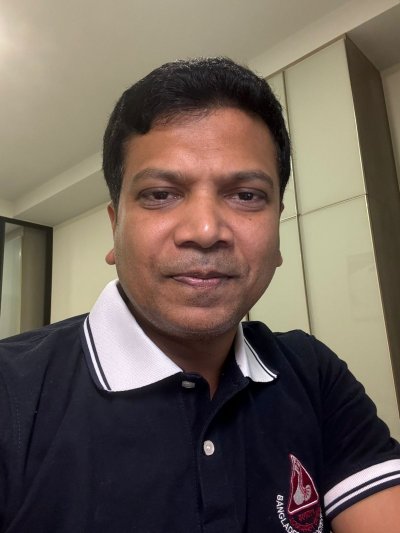
Forhad is a Bangladeshi consultant in medicine with a deep passion for sepsis, antimicrobial resistance (AMR), and conducting high-quality clinical trials in low-resource settings. He has been serving in the Bangladesh Civil Service since 2010, demonstrating a strong commitment to public health and clinical excellence. Forhad is a Commonwealth Scholar who was featured in the Yearbook 21 of the Commonwealth Scholarship Commission, UK. In recognition of his exceptional contributions during the COVID-19 pandemic, he received the prestigious Integrity Award 2021 from the Government of Bangladesh.
Forhad has co-authored the National Guidelines on Clinical Management of COVID-19 and the Standard Treatment Guidelines of Common Infections of Bangladesh, contributing significantly to national healthcare protocols. He also serves as a guest lecturer at the Liverpool School of Tropical Medicine, UK, where he shares his expertise with the next generation of healthcare professionals.
Currently, Forhad is conducting a systematic review to estimate the burden of AMR in Bangladesh in collaboration with Prof. Philippe Guerin at the Infectious Diseases Data Observatory (IDDO). He is also leading a randomized controlled trial to investigate the role of procalcitonin in reducing antibiotic therapy in adult sepsis patients under the supervision of Prof. Arjen Dondorp. Forhad’s work is driven by his dedication to improving healthcare standards and outcomes in resource-limited settings through rigorous research and clinical innovation.
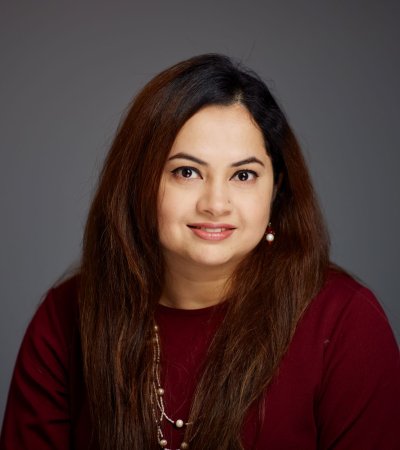
Dr Aninda Nishat Moitry is a DPhil in Clinical Medicine student based at the Infectious Diseases Data Observatory. She started her PhD in October 2023 under the supervision of Professor Philippe Guerin, and Drs. James Watson, Makoto Saito, and Stephanie Dellicour. Her doctoral research will investigate the safety of a range of antimalarial drugs used for treating acute malaria during pregnancy, with the goal to generate robust evidence to inform policy maker, regulators, clinicians, and pregnant women.
Dr Moitry is a medical doctor by training and completed her MSc in Epidemiology from Imperial College London with Chevening Scholarship. She also gained an MPH from BRAC University, Bangladesh. She became a Fellow member of the Royal Society for Public Health (RSPH), United Kingdom in 2022.
Prior to starting her PhD, Dr Moitry was working as an Assistant Professor at the University of Dhaka, Bangladesh. In addition to teaching Epidemiology and Public Health, she has worked on a number of research projects on maternal and child health, infectious diseases, and equity issues in health services utilisation in the last 7 years, and actively engaged in policy advocacy.

Cindy is a WHO/TDR Clinical Research Leadership Fellow at Infectious Diseases Data Observatory, University of Oxford. Specifically, she will work on a malaria in pregnancy research project. She is interested in gaining more knowledge and skill about research and evidence-based medicine.
Before joining IDDO, Cindy worked as an Obstetrician and Gynecologist in Palembang, South Sumatra, Indonesia. She treated many healthy pregnant women and also those with diseases, such as hepatitis B, HIV, syphilis, tuberculosis, dengue hemorrhagic fever, etc. She graduated from Obstetrics and Gynecology Study Program at Faculty of Medicine Universitas Sriwijaya in 2022 and as a medical doctor at the same university in 2016.
Cindy is a member of National Task Force of Reproductive Tract Infection Indonesian Society of Obstetrics and Gynecology. Their main concern is the antimicrobial resistance and triple elimination eradication program conducted by the Indonesian government for all pregnant women. It consists of Hepatitis B, HIV, and syphilis. Moreover, other endemic diseases in their country become their concern, such as malaria, tuberculosis, and DHF.
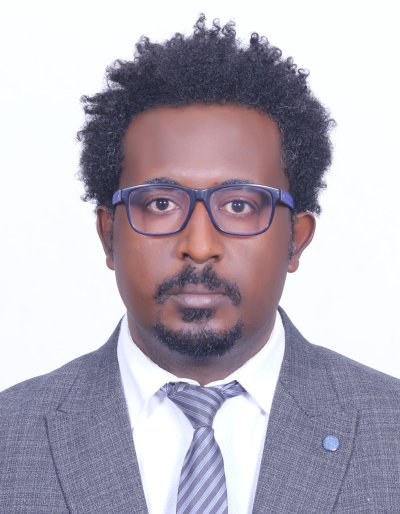
Dawit Getachew Assefa has a Master of Science Degree from Addis Ababa University in Ethiopia, and serves as a Clinical Trials Specialist. Since 2017, he has been imparting knowledge at Dilla University, Ethiopia. Additionally, he has practical experience as a Professional Nurse at Dilla University Referral Hospital and Sekota District Health Center.
In his professional tenure, he has served as a principal investigator in a measles vaccine adverse event surveillance trial in Ethiopia and as a Research Nurse at KNCV Tuberculosis Foundation, contributing to multi-country clinical research on TB Prevention therapy for people living with HIV.
Throughout his career, Dawit has amassed expertise in clinical research and evidence synthesis, including systematic reviews, meta-analyses, and network meta-analyses. His primary research interests revolve around poverty-related infectious diseases and neglected tropical infectious diseases, with a particular focus on malaria and tuberculosis.
Dawit joined IDDO/WWARN as a WHO/TDR Fellow in 2024, where he will be working on the comparative effectiveness of Artemisinin Combination Therapy on hemoglobin recovery and gametocyte clearance in P. falciparum.

Katarina Foss-Solbrekk is a Senior DPhil (PhD) candidate in law at the University of Oxford. Her research focuses on improving access to generic/biosimilar medicines under European patent law. Outside her doctoral research, she maintains a key interest in how data protection law may be used to protect and enable greater sharing of data to facilitate medical research.
Katarina has published articles in leading IP/tech journals, presented her work in several forums at the University of Oxford and at the EPIP Conference, and contributed to the Research Handbook on EU Data Protection Law. Her published research was also recently cited in a decision by the Technical Board of Appeal of the European Patent Office and awarded the 2023 European Policy for Intellectual Property Young Scholar Award.

Dr Gesa Gnegel joined the Medicine Quality Research Group as a research pharmacist in 2024. She works on the development of a dashboard as a guidance tool for medicines regulatory authorities to select portable screening technologies for the detection of substandard and falsified medicines in post-market surveillance.
Gesa studied pharmacy at the University of Freiburg, Germany and at the University of San José, Costa Rica. During her PhD at the University of Tübingen, Germany, she assessed screening devices for the detection of substandard and falsified medicines and taught pharmacy students in literature research and information management. She also worked as a coordinator of a network of pharmacists in African countries and India who implemented the screening technology GPHF-Minilab in their facilities (Difäm-EPN Minilab Network).

Alberto is a computer scientist and software engineer who spent the last decade working on various domains of computer science, from software engineering to machine learning, Despite the different angles and approaches used in his work, the constant has always been “health”. From an early experience with malaria data collection in Senegal to being the architect of digital health solutions, he has continuously nurtured a passion for public health.
In the past, he worked on the Infectious Diseases Data Observatory (IDDO) data platform to create a data-sharing environment [https://share.iddo.org/] for COVID-19 and NTDs.
He joined the Medicine Quality Research Group in 2022 and has started a DPhil to research the trading routes of falsified medicines. Network analysis will be used to map trade routes and geographical nodes, identifying where increased inspection and regulation may be most effective as well as to inform risk assessment, interventions, and optimisation of surveillance.
Alberto has a Master of Science in Computer Science, from the University of Geneva.
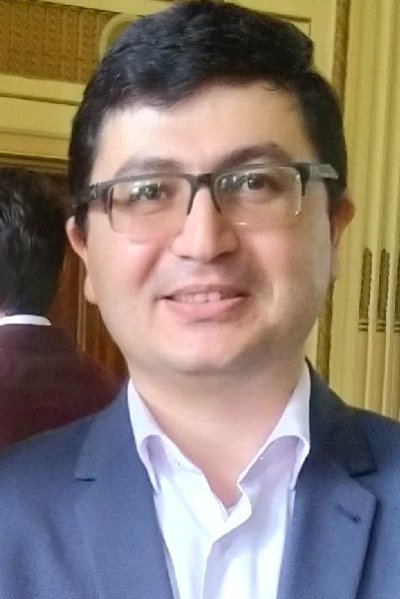
Dr Farhad Shokraneh has 20 years of experience and a PhD in Evidence Synthesis. He joined IDDO in October 2023 as Evidence Synthesis Manager.
Previously, he has worked at the University of Nottingham, King's College London, University College London, UCLH, and Cambridge University in similar roles. He has led teams to deliver projects to clients such as WHO, UN, UNICEF, FDA, UK NIHR, Cochrane, AWMF, and NICE.
As a passionate methodologist and change maker, Farhad is a co-author of the Cochrane Handbook, an editor of Systematic Reviews journal and has designed the first and most sensitive search strategy for COVID-19 literature and the first living search strategy and coined concepts such as 'Search-Resistant Concepts', 'Search Pyramid', 'Living Search Strategy', and 'Iterative Systematic Reviews'.
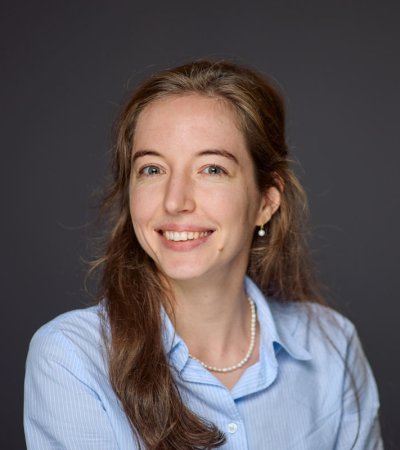
Yanina joined IDDO in March 2023. As a Data Manager, she is working on transforming and curating datasets, with a focus on Antimicrobial Resistance (AMR).
Prior to joining IDDO, Yanina worked as a Research Assistant in Institut Pasteur, Paris.
Earlier, Yanina gained her MD qualification in Ukraine, followed by a Joint Masters Degree in Public Health from the University of Sheffield and French School of Public Health (EHESP).